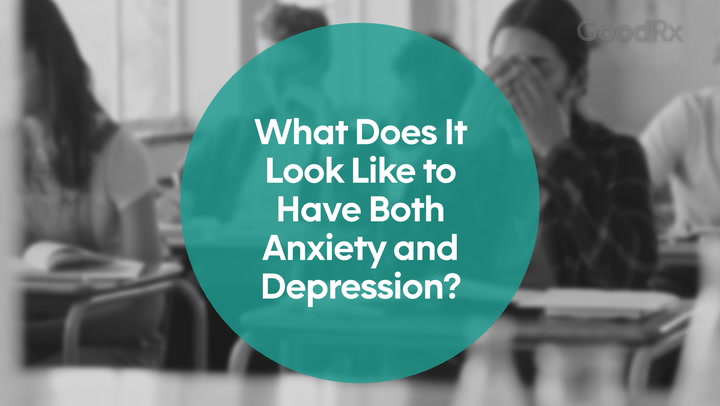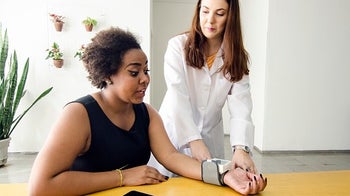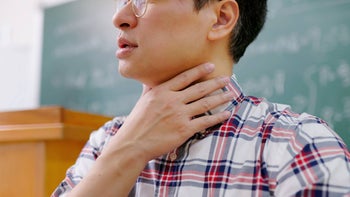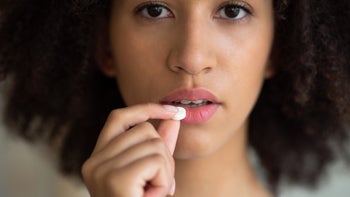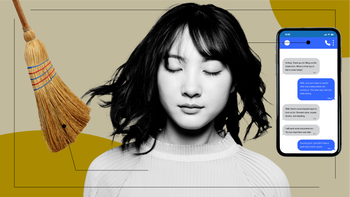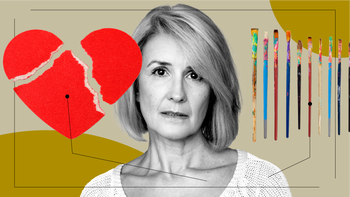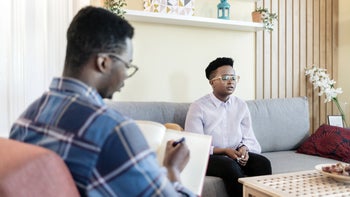
How Do Coffee and Caffeine Affect Anxiety?
Key takeaways:
Most adults in the U.S. enjoy a coffee on the regular, and it can offer many mental and physical benefits.
For some people — such as those with anxiety disorders — caffeine in coffee could worsen anxiety symptoms.
Avoiding caffeine may help lower anxiety symptoms. It’s important to know when to talk with your healthcare provider about what other treatment options might be right for you.
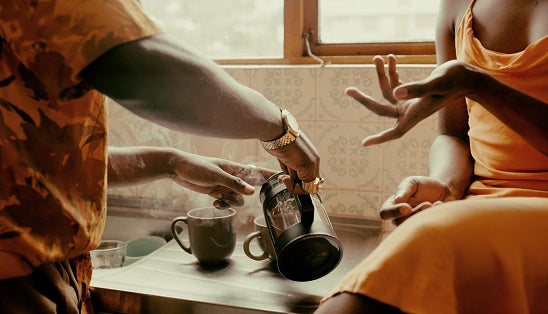
People around the globe have been enjoying coffee since the 15th century. Today, 64% of adults in the U.S. say they drink coffee regularly. We love the taste, and we love what caffeine does for us. It wakes us up in the morning, gives us that boost of energy we need, and can even improve our memory focus. Not only that, but there are some physical health benefits, too.
Although there are plenty of benefits of drinking coffee, we can’t ignore the side effects of caffeine. As you might know, too much caffeine can lead to the “jitters.” Because of this, it’s common for people to wonder whether caffeine can cause anxiety. Stay with us, as we explore exactly how caffeine and anxiety are connected.
What exactly is anxiety?
Before jumping into how coffee affects anxiety, let’s take a look at what anxiety is and what its symptoms are. Anxiety is a normal human response. Worrying about situations or life events helps to keep us safe from danger.
Search and compare options
But for people with an anxiety disorder, worrying is more than just a temporary response to a scary or difficult situation. People with anxiety disorders worry excessively about all sorts of things, and this can get in the way of normal life.
There are different types of anxiety disorders, including:
Common symptoms of anxiety include:
Nervousness or restlessness
Fast heart rate
Rapid breathing
Sweating
Trembling
Weakness or fatigue
Trouble concentrating
Insomnia
Gastrointestinal (digestive) issues
What are the effects of coffee and caffeine?
Caffeine, the main active ingredient in coffee, is a substance that works on an area of the brain called the central nervous system (brain and spinal cord). It blocks a chemical called adenosine that causes the alertness that often comes with drinking coffee.
But the way caffeine works can also lead to other effects on the body that may feel less pleasant. These side effects can kick in as soon as 45 to 60 minutes and last as long as 3 to 5 hours. Side effects vary from person to person, but are rarely dangerous. These effects depend on how much caffeine a person is used to drinking. Body mass and genetics also play a role.
Common side effects people experience with caffeine include:
Nervousness or restlessness
Fast heartbeat
Headache
Excitement
Shakiness
Irritability
Digestion issues
Frequent urination
Sound familiar? If so, that’s because many of these are also symptoms of anxiety. So, if you have anxiety, it may be hard to tell the difference between the side effects of caffeine and anxiety. And, caffeine may even make your anxiety symptoms feel worse.
Lowering caffeine side effects
If you’re struggling with unpleasant caffeine side effects, there are steps you can take to lessen them.
Avoid caffeine in the evening since it can disrupt your sleep.
Take care when drinking coffee and taking other stimulants like Sudafed or medications containing ephedrine. The combination can worsen the side effects that you experience and raise blood pressure.
Some antibiotics like Cipro and stomach medicines like Tagamet can slow down how fast your body processes caffeine. That means, caffeine hangs around in your bloodstream for longer and is more likely to cause side effects for a longer time.
How much is too much caffeine?
According to the FDA, the typical dose is 400 mg per day or roughly 4 cups.
Some people at higher risk from caffeine effects should limit or avoid caffeine altogether. This includes children and adolescents, those who are pregnant or breastfeeding, and people with underlying medical or mental health problems.
That’s because too much caffeine can raise your risk for fast, irregular heartbeats, muscle tremors, and feelings of alarm or panic. Caffeine can also affect heart function, become habit-forming, and be linked with substance use — such as smoking.
Do coffee and caffeine cause anxiety?
No, coffee and caffeine do not cause anxiety. While the side effects of caffeine and anxiety can be alike, you can’t get anxiety from caffeine directly. But, drinking coffee can make anxiety symptoms worse.
Research shows that in people with panic disorder, caffeine consumption raises the risk of having a panic attack and increases levels of anxiety.
People with anxiety should consider avoiding or limiting coffee and other caffeinated drinks. It seems that in people without an underlying anxiety disorder, caffeine probably doesn’t cause anxiety. But, listen to your own experience and reactions.
Can sugar in coffee cause anxiety?
No. But it’s possible that over time, large amounts of sugar and other artificial sweeteners may worsen stress and anxiety symptoms. Although it’s unlikely that a teaspoon of sugar in coffee will have any immediate effect on anxiety symptoms, cutting back on sugar and sweeteners wherever possible is better for your health.
What can I do if I’m worried about caffeine and anxiety?
Luckily, there are options if coffee doesn’t agree with you. There are decaf options for both coffee and tea. If you are very attached to your cup of coffee, try cutting back gradually or keep it for when you need a functional boost instead of as a daily habit.
You may also find that espresso or stronger coffee brews have more of an effect on your anxiety, so you may want to go for the lighter options.
Don’t forget that other foods and drinks may have caffeine, too. For example, energy drinks, chocolate, and soft drinks all have caffeine.
When should I talk with a healthcare provider?
While cutting back on caffeine may help you manage anxiety symptoms, it’s important to discuss your anxiety symptoms with your healthcare provider. There are many good treatments available, from lifestyle changes to therapy and medications. Be sure to talk with your provider if:
Your anxiety symptoms are affecting your daily life.
You’re having trouble controlling your anxiety.
Your anxiety is affecting your sleep, your work, or your relationships.
You have any symptoms of depression, which often presents with anxiety symptoms.
The bottom line
Many of us love our regular coffee habit — and for good reason. Coffee and caffeine help boost our energy and focus, while also giving some added health benefits. But many may also suffer from anxiety symptoms, and coffee can actually make these symptoms worse.
For some people, it may be worth avoiding caffeine in coffee and looking at alternatives. If you do have ongoing anxiety symptoms — regardless of your caffeine intake — it’s important to talk with your healthcare provider about the best treatment choices for you.
Why trust our experts?



References
Evans, J., et al. (2022). Caffeine. StatPearls.
Jacques, A., et al. (2019). The impact of sugar consumption on stress driven, emotional and addictive behaviors. Neuroscience and Biobehavioral Reviews.
Klevebrant, L., et al. (2022). Effects of caffeine on anxiety and panic attacks in patients with panic disorder: A systematic review and meta-analysis. General Hospital Psychiatry.
Mayo Clinic. (2018). Anxiety disorders.
Nardi, A. E., et al. (2009). Panic disorder and social anxiety disorder subtypes in a caffeine challenge test. Psychiatry Research.
National Coffee Association. (n.d.). The history of coffee.
Reuters. (2018). Americans are drinking a daily cup of coffee at the highest level in six years: Survey.
Temple, J. L., et al. (2017). The safety of ingested caffeine: A comprehensive review. Frontiers in Psychiatry.
U.S. Food and Drug Administration. (2018). Spilling the beans: How much caffeine is too much?
For additional resources or to connect with mental health services in your area, call SAMHSA’s National Helpline at 1-800-662-4357. For immediate assistance, call the National Suicide Prevention Lifeline at 988, or text HOME to 741-741 to reach the Crisis Text Line.




